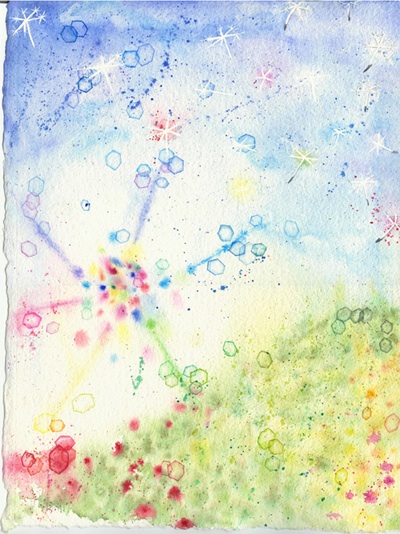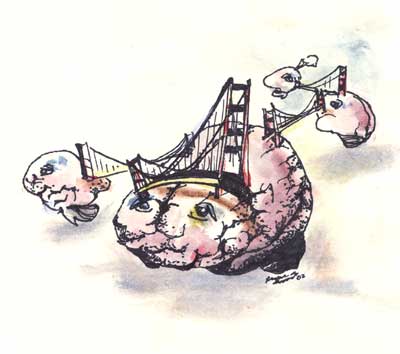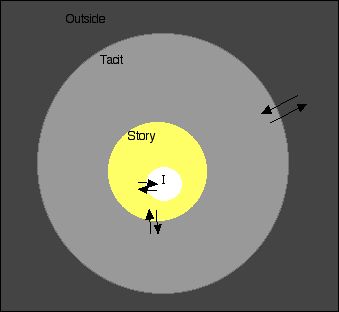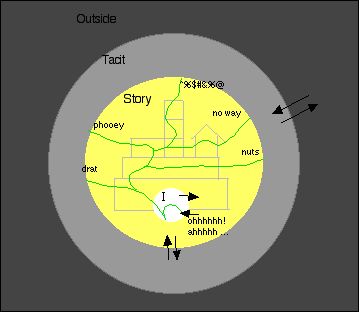Empirical Inquiry: Limitations and Possibilities
Paul Grobstein
Center for Science in Society
7 December 2007
| overview| no unwobbling pivots | story | intersubjectivity | inquiry and education |
New Directions for Inquiry and Education: Empirical Non-Foundationalism |
 |
Stop trying to get it right, enjoy instead the creative freedom of aspiring instead to get it less wrong, of continually creating new generative stories using all three loops
Empirical non-foundationalism:
- Recognize the inadequacy of purely empirical approaches, embrace the additional two productive loops ... the unconscious/story teller and the interpersonal
- seeking objectivity is just a matter of getting as much intersubjective agreement as you can manage
- Accept/value the role of stories in inquiry, and of diversity of stories
- If we change the stories we live by, quite possibly we change our lives.
- Commit to helping students acquire not only critical but creative skills, using all three loops
- The logic of aspiring to, and teaching, "objectivity" thus derives not only from our individual needs to make our individual ways in a mysterious world but equally from a recognition that we can better do so in state of the most effective exchange with people whose experiences/understandings are different from our own.
- Stop worrying about the uncertainty of the known. Enjoy/share enjoyment of the certainty of the unknown and our collective participation in creating what might yet be
- Commit to sharing that understanding/enjoyment with students ... and with the world at large
 | 
|
| Out beyond ideas of right-doing and wrong-doing there is a field. I'll meet you there. Jelaluddin Rumi
13th century Sufi poet
|
Thanks for listening to my story, please how it relates to/influences your own and how it might in turn influence mine ...






